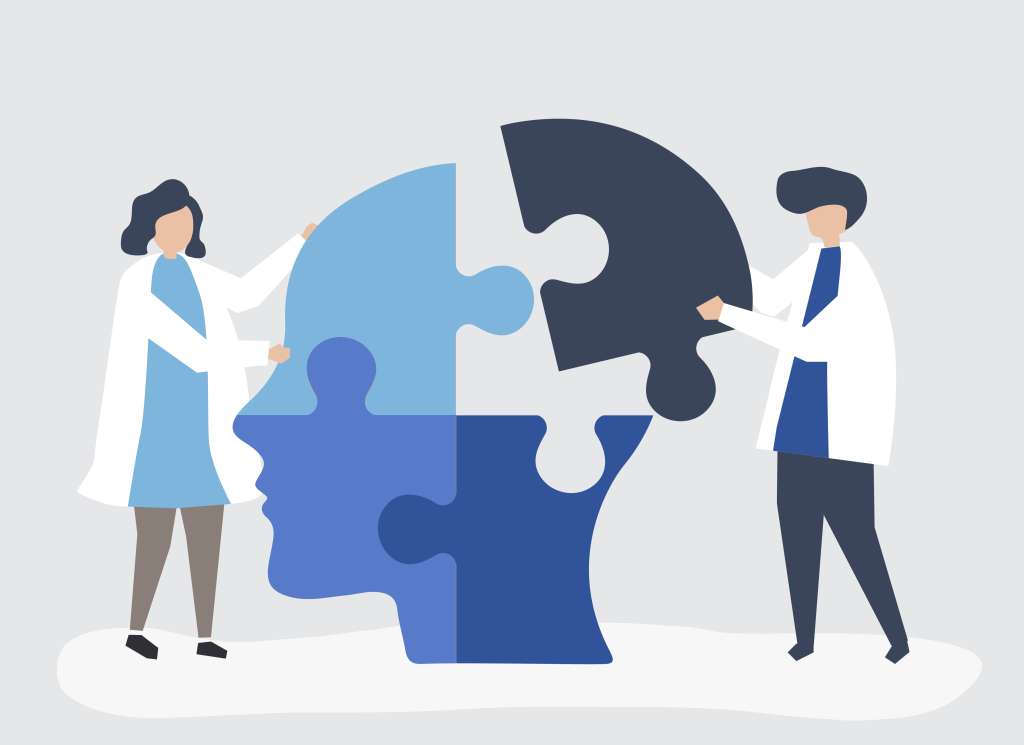The stigma around mental health is damaging to those suffering from psychiatric or psychological conditions, including common complaints such as depression or anxiety and lifelong developmental disabilities such as autism. However, it’s also damaging to society as a whole, as it creates unnecessary divisions and perpetuates a culture of shame and misunderstanding around health issues that can affect anyone at any time.
It’s particularly damaging and unfortunate when stigma exists within the healthcare sector. Medical professionals trusted to deal with illnesses and disabilities should actively strive to overcome stigma, both within themselves and within others and the institutions they work for.
The problems caused by stigma
Mental health stigma within healthcare can create obstacles to access for many and reduce the quality of care available. As well as stopping or discouraging those with mental illness from receiving appropriate treatment, the presence of stigma can also reduce the quality or availability of physical healthcare for those deemed mentally ill.
Perceptions of patients as difficult, unpredictable, unreliable, problematic, etc., can mean that their statements about their own health aren’t taken seriously, or that physicians are reluctant to treat them. Those with mental health conditions can sometimes be blamed for their physical health problems, either openly or by implication.
Mental health nursing
Nurse practitioners (NPs) are often on the front lines of providing access to mental health services and play an essential role in breaking down the stigma around the subject. The number of mental health NP jobs is expected to grow dramatically over the next few years as awareness of the urgent and widespread need for mental healthcare increases. Baylor University offers an online BSN-DNP psychiatric-mental health nurse practitioner programme that’s considered one of the best in the country. Students can qualify in less than 3.5 years, including a clinical placement, and all coursework is completed 100% online.
Understanding stigma
Stigma is a form of prejudice. It consists of labelling and othering a person or social group due to a particular quality they possess. In this case, that quality is mental illness or a mental health-related condition. The person is identified with their condition, and all other aspects of their being are devalued or ignored. In addition, the condition itself is poorly understood, and this ignorance may be rooted in fear and deliberately cultivated: “I don’t want to hear about it.”
At worst, this stigma can lead to dehumanisation. It nearly always results in discrimination, consciously or otherwise. Stigma is usually social in that it consists of a number of unfounded beliefs held in common by a powerful or majority social group and attached to a less powerful or minority social group. One person might stigmatise another, but the stigma is often structural, meaning that it’s built into the way that an institution or society operates and is furthered through laws, customs, assumptions, and even language.
There is also self-stigma, where a person internalises prevalent prejudices against people such as themselves. So, a person with a mental illness may think that it’s their own fault, that they are weak and defective, or a ‘bad person’. This can result in them not seeking help (perhaps because they’re ashamed or feel that they will be turned away) or being driven towards self-destructive behaviour such as substance abuse, self-harm, or suicide.

Reducing stigma
Healthcare practitioners can help reduce the stigma around mental illness by speaking openly about the subject, both to patients and in public. Even those healthcare workers not directly concerned with psychiatric treatment should educate themselves on the subject and on the damage done by incorrect assumptions and inappropriate behavior. Many people who visit a GP or outpatient department with physical complaints may also suffer from one or more mental health issues. Anyone perceived as a gatekeeper to medical treatment should always be mindful of this and act and speak appropriately.
Stigma within healthcare
Encountering mental health stigma within the healthcare sector can be the most distressing manifestation of this problem. When those perceived as trusted and knowledgeable professionals exhibit prejudice or practise discrimination, even unknowingly, it’s taken more seriously and has more lasting consequences for those on the receiving end. It also reflects badly on the sector as a whole.
Patients struggling with signs of mental illness may feel that they are dismissed, dehumanised, or ‘put in a box’ as soon as they start to talk about their difficulties. They may feel that decisions about their treatment are fully or partially taken out of their hands, that they are coerced into cooperating, or that they are not given all the information they need to make an informed decision. At the very least, they might feel patronised, shamed, or not properly listened to by those they have turned to for help.
Improved education
Better training and education around mental health for all healthcare professionals can help break down stigma. Teaching practitioners about appropriate language and behavior can give them the confidence to approach these issues more proactively. Social contact workshops with individuals who have first-hand lived experience of mental illness can go a long way towards reducing prejudice, fear, and misconceptions. These workshops differ from patient interaction in that the individual is a trained speaker who is meeting healthcare professionals as an educator.
Healthcare providers can take these lessons out into their wider community, working with speakers on mental health and facilitating understanding and support. Those suffering from mental health conditions are not a homogenous group, but all deserve to have their voices heard. Providers can work with representatives of people with different illnesses and conditions to hear their concerns, provide access, and promote integration.
Stigmas attached to mental illness and mental health conditions often interact with the conditions to have deleterious effects. Tackling stigma is therefore part of the duty of holistic care for medical professionals. This process must begin by addressing institutional prejudice and checking one’s own attitudes and understanding. Healthcare providers have a role to play as educators and facilitators for greater sympathy, openness, and appreciation for mental health issues and how they affect us all.













